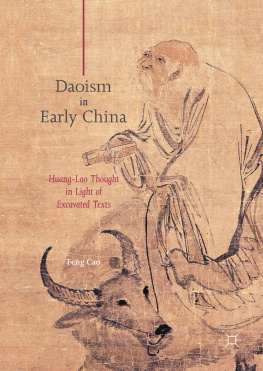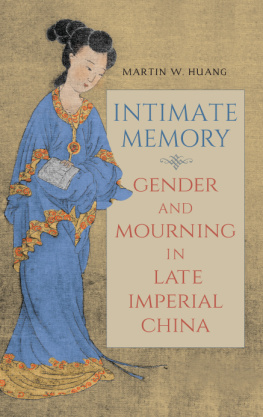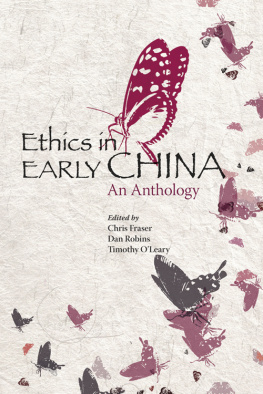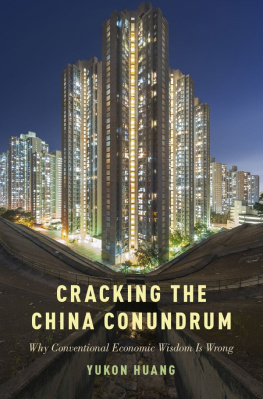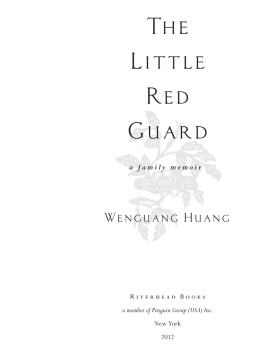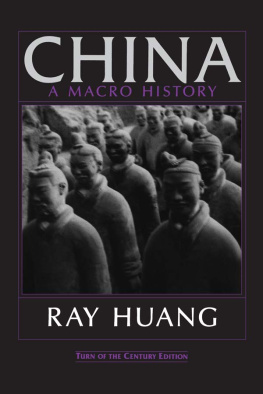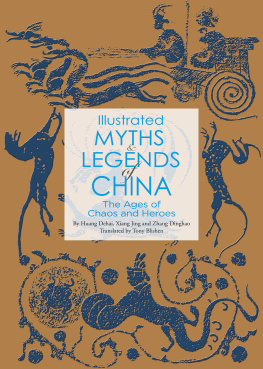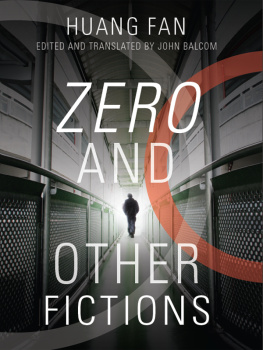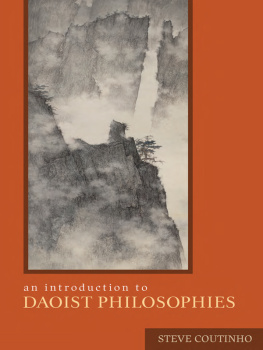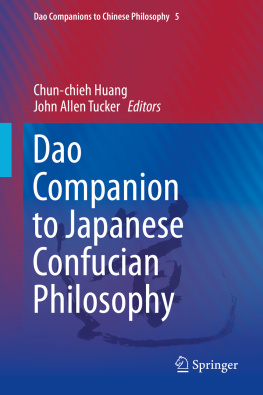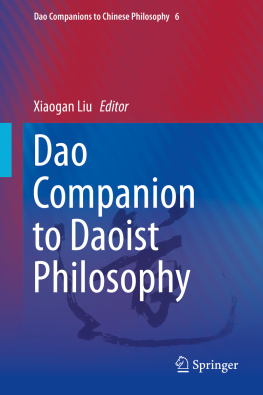From a historical standpoint, Huang-Lao Daoism may be separated into three chronological periods: Early, Mature and Latter. Rulers at the beginning of the Han dynasty were devout followers of Huang-Lao and a firm inculcation into the classic texts attributed to the Huang-Lao tradition were a must for all echelons of the ruling classes; being well versed in the practical application of Huang-Lao ideas was also a must. We see that the characters huang () and lao () denoting the figures of the Yellow Emperor and Laozi respectively, as well as the texts and thought attributed to them, appear frequently throughout Han dynasty historical texts. As a result we may see this as the mature period of Huang-Lao Daoism. The description of the School of Dao from the Discussion of the Fundamentals of the Six Schools ( lun liujia yaozhi ) section of the prologue to the Annals of the Historian ( Shiji ) written by Sima Qians () father Sima Tan () is generally accepted by the academic world as a plausible description of Huang-Lao Daoism in this early Han period.
The School of the Dao unifies essence ( jing ) and spirit ( shen ), ensuring that all actions conform with the immaterial Dao which leads to a state in which all things are in plenty. The technical side of the School of Dao is based upon achieving accordance with the ultimate order and progression of the Yin and Yang principles as practiced by the School of Yin-Yang , drawing on the strengths of the Schools of Confucius and Mo Di, taking the essentials from the School of Names and the Legalism. The School of Dao moves forward with the developments of the times, and changes with the world around it, from changing social mores to performing actual deeds, nothing lies beyond its scope. The principles are direct, succinct and easy to grasp, so that one achieves the most by exerting the least effort. The Confucians differ from this in that they believe that the Ruler is divinely appointed to rule over man; the ruler must be active in his ruling whilst the minister passively obeys his rule; the ruler makes the first move and the minister follows his lead. This leads to the exhaustion of the ruler whilst the minister lives a life of leisure. The principle of the Great Dao is to forsake rigid strength and greed, to eliminate intelligence, to put aside such things and instead rule over the kingdom with the techniques of the School of Dao. The combination of essence and spirit ( jingshen ) will become weakened when over-used, the body will become exhausted when over-taxed; there will be no peace when the balance between the two halves is disturbed, and I have never heard of someone enjoying longevity comparable to that of Heaven and Earth in such a state of unbalance.
The School of Dao speaks of doing nothing, and also of nothing remaining undone. It is a simple matter to put these principles into practice, although the expression of these principles is obscure. Its teachings are based upon a metaphysical set of theories which guide the technique of according and following ( yinxun ). The School of Dao believes that nothing comes with a fixed tendency, nor are there forms that remain ever unchanging, hence Daoists are able to explore the varying states of all things. Their acts put them neither beyond nor behind others (other wu ), hence they are able to command others. They adhere to a principle ( fa ) in the one case, but are not bound by it in others, realizing their achievements by doing what is right for the time; they use a standard ( du ) in the one case, but are not bound by it in another, hence they realize harmony with the actual state of all things. Hence it is said, the Sage Person never ages because he responds to the changing times and shifting trends. The eternal aspect of the Dao is its changes, hence practicing appropriate response is the key to rule.
With his ministers assembled before him, the ruler ought to make each aware of his responsibilities. When the minister conducts his affairs in a way that conforms to the spirit of his words, it is called proper ( duan ), otherwise it is called hollow ( kuan ). If one does not listen to hollow words, there will be no dissent, and the difference between the sage and the degenerate will be naturally discernable, as is the difference between black and white. It is only a question of putting these principles into practice; if one is willing to practice them, what could lie beyond ones ability? Only thus may ones actions be in accord with the dark and impenetrable Dao. One will be equally able to shine over the kingdom or retreat into namelessness. In general terms, one has life because one has both essence and spirit, these are attached to ones physical body. If the combination of essence and spirit ( jingshen ) is overused it will become weakened, if the body is over-taxed it will become exhausted, the physical form ( xing ) and spirit ( shen ) will perish upon separation. Once dead there is no restoration to life, once separated there is no restoration to unity, hence this is a matter that the sage person treats as being of the utmost importance. From this point of view, the spirit is the root of life, whilst the physical body is the vehicle of life. How can one make statements on how one will rule over the kingdom if one is yet to wrestle control over ones spiritual and physical unity?

